BTEC Level 5 Professional Diploma in
SOFT TISSUE THERAPY
(More than ‘just’ sport and remedial massage)
BTEC Level 5 Professional Diploma in SOFT TISSUE THERAPY
(More than ‘just’ sport and remedial massage)
Our BTEC Level 5 qualification trains people to become complete therapists with the best career potential. Soft Tissue Therapists treat clients with musculoskeletal pain or dysfunction caused by any of life’s stresses and from all walks of life. Although sport can be a common factor with many of our clients, this is far from being the main issue we deal with.
ISRM trained Soft Tissue Therapists work successfully in private practice and also alongside Physiotherpists, Osteopaths and Chiropractors in private clinics.
Our qualification has been evolving for over 25 years through the clinical development of a group of the UK’s leading therapists, with the aim of best meeting the real treatment needs of the client.
- Injury assessment
- Advanced treatment techniques
- Remedial exercise and advice to…
- Enhance recovery
- Prevent injury
- Improve posture and function
ISRM Education
The ISRM qualification has evolved to best meet the needs of the client and it has become the benchmark for quality training in the UK. It has been developed by working therapists who really understand what it takes to provide good effective treatment and build a successful practice
Almost all massage therapists are self-employed and work in the private sector of healthcare so our vocational training is centred round this. It enables therapists to safely and effectively treat clients from all walks of life, suffering a variety of musculoskeletal as well as medical conditions. This offers the therapist the greatest potential for success in a career that can be immensely satisfying and enjoyable.
The ISRM qualification is externally validated by BTEC at Level 5, it recognised nationally and is well known in many other countries too.
The qualification operates through a small number of validated schools and ISRM work very closely with them to ensure that high standards are achieved and improved on at all our centres
MISSION SATATEMENT
Our mission is to establish a recognised and respected new category in modern
musculoskeletal healthcare. One that safely and effectively treats people who are
suffering with chronic musculoskeletal pain and minor injuries, using manual hands-
on treatment techniques.
Traditionally, this job was done by physiotherapists but gradually over the decades
this has changed, particularly in recent years. The latest core curriculum for
physiotherapy training now no longer includes any of the hands-on treatment
techniques and it has become almost completely exercise based. There is nothing
wrong with these exercise programs but it's not the same thing as a hands-on
treatment. They work in different ways and help people in different ways. They can
complement each other but they are not the same thing.
Of course, there are still many senior physiotherapists in practice who were trained
to treat injuries with hands-on techniques. They are still treating their patients this
way and it is a pleasure to see this. But as time goes on and the new generation
without this training take over the profession, it will eventually disappear.
The hands-on treatment techniques we use go back thousands of years and are just
as effective today as they ever were. But even more so because over the last 40
years we have studied, developed and perfecting them, so we now teach and deliver
them on a far higher clinical level than ever before.
But we don't just apply techniques to injuries. We don't treat injuries - we treat people
with injuries. Even if two people have identical tissue damage and the same injury,
everything else is different because no two people are the same. The way they
respond to the injury, the way they respond to treatment, the way they rehabilitate,
even the way the injury affects them emotionally are all different.
And if someone suffers with chronic pain for some time it becomes more complex. If
they have had knee pain for a few months they will compensate for this in other ways
and it is no longer just a knee problem. So, we don’t follow routines to treat local
injuries because we must also consider the wider issues. No two injuries are ever the
same and that is why we focus on the needs of the client rather than the local site of
their injury.
Everyone suffers with chronic musculoskeletal pain or minor injuries at some time in
their lives and they can all benefit from the hands-on treatments we train our
therapist to deliver, so the market for this level of care is truly immense. And as AI
and robotics take over more of our lives, the value of having a human therapist using
hands-on treatment to provide individual care will become even more greatly valued
in the future. But no public healthcare profession is providing this service anymore so
it is now down to us. We cannot let these highly effective therapeutic skills die out.
We have been developing these skills along with our training through 40 years of
experience. The therapists we train can and do have stimulating and rewarding
lifetime careers from the training we provide. Our mission is to build this into a well-
recognised therapy with potentially thousands of professional therapists making their
living by helping all people across the country who need it.
To become part of this mission and have a stimulating and rewarding career in
musculoskeletal healthcare, you have to train with us because no other training
centre is doing what we do.
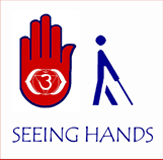
The ISRM is delighted to be involved with Seeing Hands Nepal, which is a charity training blind people in Nepal to give 'western' style massage to tourist/trekkers. Instead of living in extreme poverty, dependent on their family or forced to beg, the first few therapists are now earning money. (And giving a good massage service to tired trekkers too.)
ISRM is helping in the design and delivery of an effective training programme and training volunteer tutors.
This really is a wonderful project and we hope you will take time to look on their website to find out more. [click here]
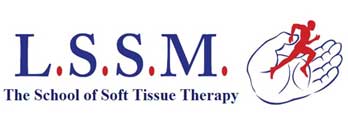
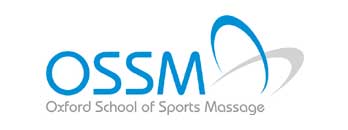

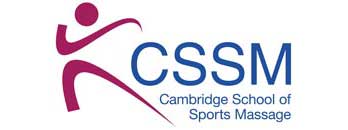
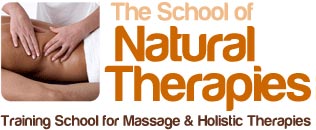
SHARE THIS PAGE!